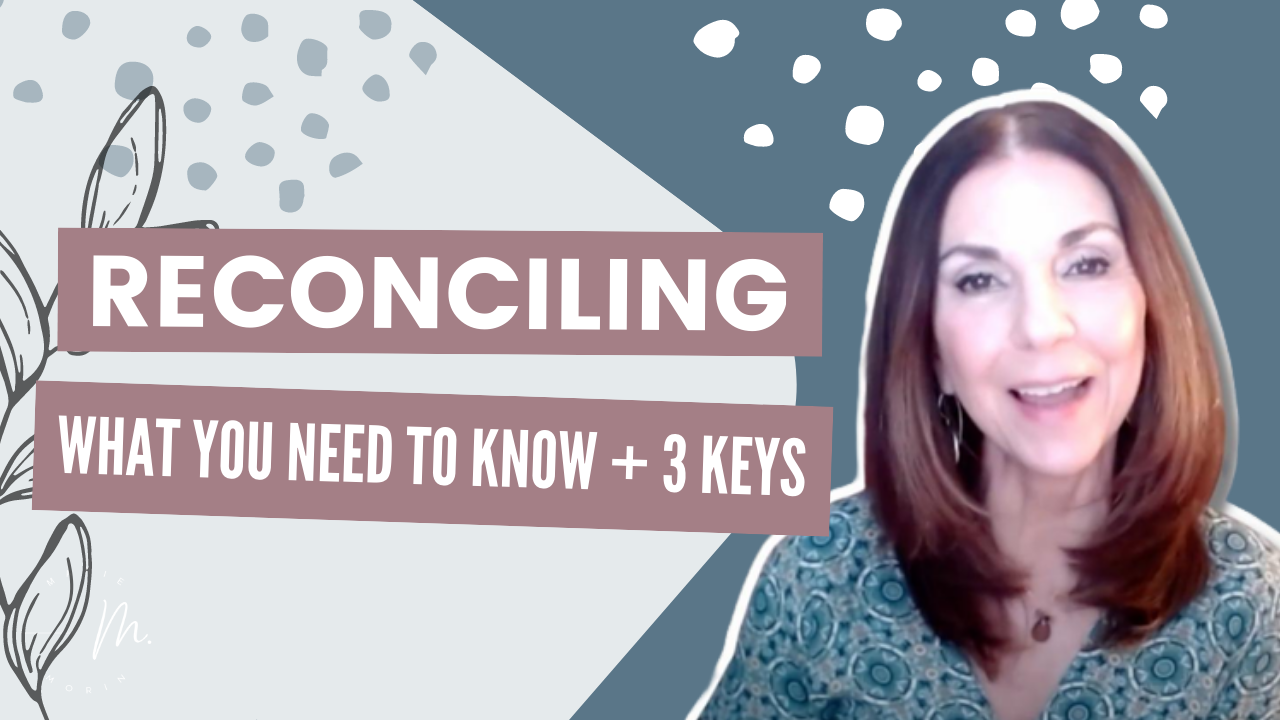Estrangement describes the condition within families that experience physical and or emotional distance from one or more family members. Family estrangement research explores the breakdown of relationships, including factors involving money, conflict, differing values, and personality differences.
Often there are years of problematic interactions and one shattering event that culminates in a family rift. However, regarding the rifts among parent-adult children and families, the presence of differing expectations significantly impacts the erosion and the ability to reconcile. This article discusses What You Need To Know About Reconciling and Three Keys to Understanding Expectations.
Gaining insight into the elements of expectations is helpful whether you desire reconciliation or are satisfied in your present state of separation. Learning to move forward means you process your participation and your families.
Commonly, members share expectations of how to behave within the family. These shared expectations are usually followed and understood. Attending weddings, and special events, regularly calling for check-ins, communicating openly, and supporting each other are ways in which families relate. Individual expectations or beliefs are often framed as “family values” that includes how each member should behave.
Dr. Karl Pillemer, author of Fault Lines Fractured Families and How to Mend Them, explains these beliefs are “judgments about what is important in family life and the moral system that guides our interactions with relatives.
Expectations aren’t the problem. However, the polarity of expectations with fixed beliefs of who is right or wrong contributes to estrangement and obstructs the potential for reconnection. One’s upbringing, the time they were born, culture, and personal experience shape opinions of how families “should” behave. When the expectations of one-party clash with others, the result can be offenses, arguments, and resentments.
A typical scenario is a case of siblings navigating their ailing parent needing help. One sibling’s expectation of equally sharing responsibilities may instigate conflict. If the other sibling does not follow their expectations, they will likely meet with pushback. After all, according to the sibling who is providing care, siblings “should” be there to do whatever they can because siblings have your back, and this is what kids “should” do for their mom.
Keys To Understanding Expectations
1. Unrealistic Expectations Create Judgements
Unrealistic expectations of family members have the potential to fuel the estrangement due to the judgment that follows. For the sibling who did help, they may judge the other as wrong, heartless, selfish, etc.
2. Unmet Expectations are Considered a Violation
The lack of cooperation and fulfillment of the expectation is considered a violation. As in our example of siblings, it feels overwhelmingly wrong for the sibling who believes the other has failed their obligation. The violation can be so upsetting that resentment forms.
Anne Lamott said, “Expectations are resentments waiting to happen.” Indeed the offense for both parties can become insurmountable.
3. No Universal Rule of Family Behaviors
A Common disagreement in families is the distribution of one’s estate and the deceased persons wishes.
Likewise, there is no universal rule that supersedes the needs and limitations of family members when it comes to the care of an ill parent. Many family estrangements originate over money and the maintenance of elderly parents. Unfortunately, trouble ensues unless members can effectively and respectfully discuss the issue.
While all parties partook in the estrangement, not one person is solely to blame. Estrangement and the scope of what occurred are not easily discernable. The family’s historical patterns and personalities interact with each other and environmental stressors. Were the members emotionally stable and reliable? Was their alcohol use or mental illness in the family? Did the family have too few boundaries, or was it rigid?
Families that struggle financially and have unstable homes impact the well-being of their members. Emotionally distanced parents and controlling parental figures contribute to reasons for estrangement. There is a myriad of factors that undermine the fabric of relationships.
In addition, family relationships with high conflict, secret-keeping, demanding expectations, and frequent criticisms are burdensome.
Demeaning family members harm children and adults alike. Arguments that become duels are equally damaging. Sometimes family members suffer from an emotional distance. Less than essential human connection creates a void. Unless you are perfect, you can relate to behavior.
Common factors that contribute to parent and adult child estrangement include divorce, being too close to one or more parents, differing values, lifestyles, choices, difficult son or daughter in law, mental illness and addiction, and their therapist. Research indicates that estrangement and the breakdown of the parent-child relationship are multilayered.
However, regarding the rifts among parent-adult children and families, differing expectations significantly impact the relationship’s erosion.
Estrangement and Abuse
When considering the possibility of reconciling with an emotionally and or physically abusive great care is required. Counseling can assist in creating boundaries, making sense of what happened and what continues to happen, and learning how to regain and develop a healthy identity away from the abuser.
Therapy is an opportunity to talk with a trusted professional who will listen to your concerns. When there is abuse, consider taking positive steps forward towards healing with the help of a therapist. Reconciling may only be possible if the abuser is willing to work with a family therapist. Consider if it is safe to resume a relationship with an abusive family member without evidence that the abuser has changed or takes responsibility for their harmful actions.
When there is a history of abuse, the notion of reconciling requires the professional guidance of a therapist and insight into the abuser’s recognition of their behaviors. More to the point, therapeutic work is essential for both parties and the assurance of future emotional and physical safety. Kylie Agllias, researcher, and educator, in her book Family Estrangement A Matter Of Perspective, explains that commitment, insight, and integrity are needed to reestablish trust.
Estrangement describes the condition within families that experience physical and or emotional distance from one or more family members. Family estrangement research explores the breakdown of relationships, including factors involving money, conflict, differing values, and personality differences. Often there are years of problematic interactions and one shattering event that culminates in a family rift.
However, regarding the rifts among parent-adult children and families, the presence of differing expectations significantly impacts the erosion and the ability to reconcile. This article discusses What You Need To Know About Reconciling and Three Keys to Understanding Expectations.
Get The eBook: Feeling Heartbroken and Alone? How to Pick Up the Pieces When You are Estranged.
Resources:
- Agllias, Kylie. Family Estrangement A Matter Of Perspective. New York, Routledge, 2017.
- Coleman, Joshua. Rules of Estrangement. New York, Harmony Books, 2020.
- Morin, Marie. Feeling Heartbroken and Alone? How to Pick Up the Pieces When You are Estranged. eBook. 2022.
- Morin, M.L. [Morin Holistic Therapy]. (2022, January 4 ). What is Family Estrangement? You Are Not Alone.
- Morin, M.L. [Morin Holistic Therapy]. (2021, September 8). Diaphragmatic Breathing: 5 Minute Deep Breathing Exercise for Beginners.
- Morin, Marie. How to Deal with Estranged Family During the Holidays (2021, November 21) Sixty and Me. https://sixtyandme.com/estranged-family-holidays/
- Pillemer, Karl. Fault Lines Fractured Families and How to Mend Them. New York Penguin Random House, 2020.
- Suicide Hotline






